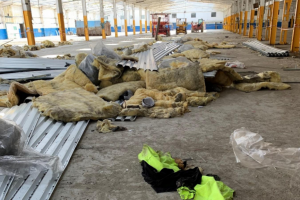Employers should act on injuries outside work
EMPLOYERS IN England are being encouraged to help their staff prevent unintentional injury outside of the workplace through the monitoring of data and sharing of safety messages, as part of a new strategy.
Every year in England an average of 4,400 people aged between 25-64 die as the result of an accident, with 240,000 annual accident-related hospital admission episodes among this group. The majority of these incidents occur outside of the working environment, yet the financial impact on businesses is huge.
The Royal Society for the Prevention of Accidents (RoSPA) has published Safe and active at all ages: a national strategy to prevent serious accidental injuries in England. Among its recommendations, the document encourages employers to recognise the contribution they can make to reducing the number and severity of injuries to workers in their own homes and while taking part in leisure pursuits, which would not only benefit individuals and their families but also address the lost productivity these accidents cause.
The strategy, which has been developed by a wide range of partners including Public Health England and the Royal College of Emergency Medicine, recommends the collection of data on absence that results from accidents outside of work – either to workers or those for whom they have caring responsibilities – in order to establish the evidence base for action and the development of a network of higher-performing organisations that could lead the way on “carry over” safety programmes from the workplace into other parts of life. It also urges action on the management of occupational road risk, recognising that a third of road accidents are estimated to involve someone who is at work at the time.
Chief executive of RoSPA Errol Taylor said, “Through the 20th century, UK workplaces made great strides in reducing incidents of injury on the factory floor, on construction sites, in offices and across the range of working environments. However, over the same time period the number of accidental death and serious injury in home and leisure environments steadily increased.
“This is something that employers cannot ignore – such injury results in lost working days, reduced productivity and loss of revenue.
“Organisations large and small are hotbeds of excellent health and safety systems and practice, so businesses are extremely well placed to help address the burden serious accidental injury places not only on their bottom line, but on our overstretched health and social care services too.”
The strategy seeks to address the rising number of accidental deaths in England and the heavy toll these place on the health and social care services, as well as the personal heartache that serious unintentional injury can cause. It aims to achieve a step-change in the delivery of evidence-based accident prevention programmes across England, promote safe and active lives and reduce the burden of serious accidental injury on society.
The strategy’s 25 recommendations for action address the major dangers faced by people across their life course, from birth to older age, and wherever they may find themselves – in their own homes, at work, in education, on the road, or during leisure pursuits.
Representatives of the following organisations participated in the National Accident Prevention Strategy Advisory Group, under the chairmanship of the Rt Hon Stephen Dorrell: Public Health England; Association of Directors of Public Health; Blackburn with Darwen Council; Faculty of Public Health; Institute of Health Promotion and Education; Institute of Health Visiting; Royal College of Emergency Medicine; Royal College of Nursing; Royal College of Paediatrics and Child Health; Royal Society for Public Health; University of Nottingham; and University of the West of England. Contributions were also made by RoSPA’s national committees, including the National Occupational Safety and Health Committee.
HSM publishes a weekly eNewsletter, delivering a carefully chosen selection of the latest stories straight to your inbox.
Subscribe here





